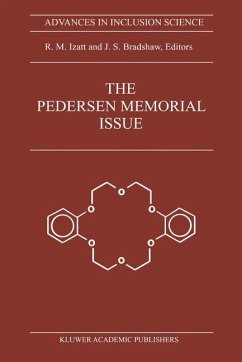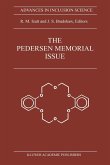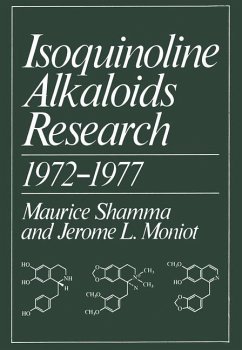Foreword: Charles J. Pedersen (1904-1989), Nobel Laureate in Chemistry (1987)
This issue is dedicated to the memory of the late Charles J. Pedersen in recognition of his outstanding contribution to scientific research, culminating in his discovery of crown ethers and their remarkable cation complexing properties and his receipt of the 1987 Nobel Prize in Chemistry. Charlie's origin and early years in Korea did not portend the creative work in chemistry which would characterize his later life. However, we can see in his early years the influence of his Norwegian father and Japanese mother who considered his formal education to be of utmost importance. At the age of eight, he was sent abroad to Japan for schooling, first at a convent school in Nagasaki, and two years later at a French-American preparatory school in Yokohama run by a Marianist order of Catholic priests and brothers. The latter group encouraged him to attend the order's University of Dayton in Ohio where he received a bachelors degree in chemical engineering. Charlie's academic experiences, his employment with du Pont, and the creative spark which he manifested at an early stage of his scientific career are detailed in the paper in this issue by Herman Schroeder. Schroeder had a long-time association with Charlie at du Pont as a co-worker, supervisor, and friend. His recollections provide insight into Charlie's creative mind. In addition, they make it clear that a long period of creative work preceded the accidental discovery of the first synthetic crown ether. It is important to note that Charlie's mind was well prepared to recognize the importance of his discovery. The field of macrocyclic chemistry, to a large degree, had its beginnings with Charlie's discovery. A first-person account of his discovery is given as the first paper in this issue. This account was prepared by him and was read at the 12th Symposium on Macrocyclic Chemistry in Hiroshima, Japan in 1987 by Herman Schroeder. The growth of this field since Charlie's first publication on the subject in 1967 has been enormous. This growth is evidenced in one segment of the field by the three-fold increase in the number of references in two Chemical Reviews articles on thermodynamic quantities associated with cation-macrocycle interaction authored by us in 1985 and 1991. Charlie lived to see much of this growth. He saw many of his own predictions of possible uses of crown ethers and related macrocycles realized. Recognition for Charlie came late in his career. He found it satisfying to see so many capable scientists go in so many directions as they applied his discovery to a wide range of chemical and other fields. He made seminal contributions to the broad area known today as molecular recognition. His work illustrates how one individual can make an enormous difference in science. The effectof his life and work on those of us who contributed papers for this issue and on many others is appreciated and is acknowledged by several of the authors in their individual papers. It is entirely appropriate to honor his memory with this special issue.
R.M. Izatt, J.S. Bradshaw
Department of Chemistry, Brigham Young University, Provo, UT 84602, U.S.A.
Reprinted from Journal of Inclusion Phenomena and Molecular Recognition in Chemistry, Volume 12, Nos. 1-4 (1992)
This issue is dedicated to the memory of the late Charles J. Pedersen in recognition of his outstanding contribution to scientific research, culminating in his discovery of crown ethers and their remarkable cation complexing properties and his receipt of the 1987 Nobel Prize in Chemistry. Charlie's origin and early years in Korea did not portend the creative work in chemistry which would characterize his later life. However, we can see in his early years the influence of his Norwegian father and Japanese mother who considered his formal education to be of utmost importance. At the age of eight, he was sent abroad to Japan for schooling, first at a convent school in Nagasaki, and two years later at a French-American preparatory school in Yokohama run by a Marianist order of Catholic priests and brothers. The latter group encouraged him to attend the order's University of Dayton in Ohio where he received a bachelors degree in chemical engineering. Charlie's academic experiences, his employment with du Pont, and the creative spark which he manifested at an early stage of his scientific career are detailed in the paper in this issue by Herman Schroeder. Schroeder had a long-time association with Charlie at du Pont as a co-worker, supervisor, and friend. His recollections provide insight into Charlie's creative mind. In addition, they make it clear that a long period of creative work preceded the accidental discovery of the first synthetic crown ether. It is important to note that Charlie's mind was well prepared to recognize the importance of his discovery. The field of macrocyclic chemistry, to a large degree, had its beginnings with Charlie's discovery. A first-person account of his discovery is given as the first paper in this issue. This account was prepared by him and was read at the 12th Symposium on Macrocyclic Chemistry in Hiroshima, Japan in 1987 by Herman Schroeder. The growth of this field since Charlie's first publication on the subject in 1967 has been enormous. This growth is evidenced in one segment of the field by the three-fold increase in the number of references in two Chemical Reviews articles on thermodynamic quantities associated with cation-macrocycle interaction authored by us in 1985 and 1991. Charlie lived to see much of this growth. He saw many of his own predictions of possible uses of crown ethers and related macrocycles realized. Recognition for Charlie came late in his career. He found it satisfying to see so many capable scientists go in so many directions as they applied his discovery to a wide range of chemical and other fields. He made seminal contributions to the broad area known today as molecular recognition. His work illustrates how one individual can make an enormous difference in science. The effectof his life and work on those of us who contributed papers for this issue and on many others is appreciated and is acknowledged by several of the authors in their individual papers. It is entirely appropriate to honor his memory with this special issue.
R.M. Izatt, J.S. Bradshaw
Department of Chemistry, Brigham Young University, Provo, UT 84602, U.S.A.
Reprinted from Journal of Inclusion Phenomena and Molecular Recognition in Chemistry, Volume 12, Nos. 1-4 (1992)








